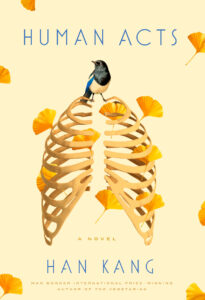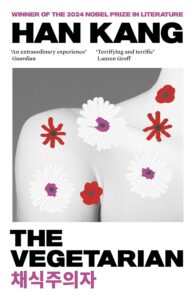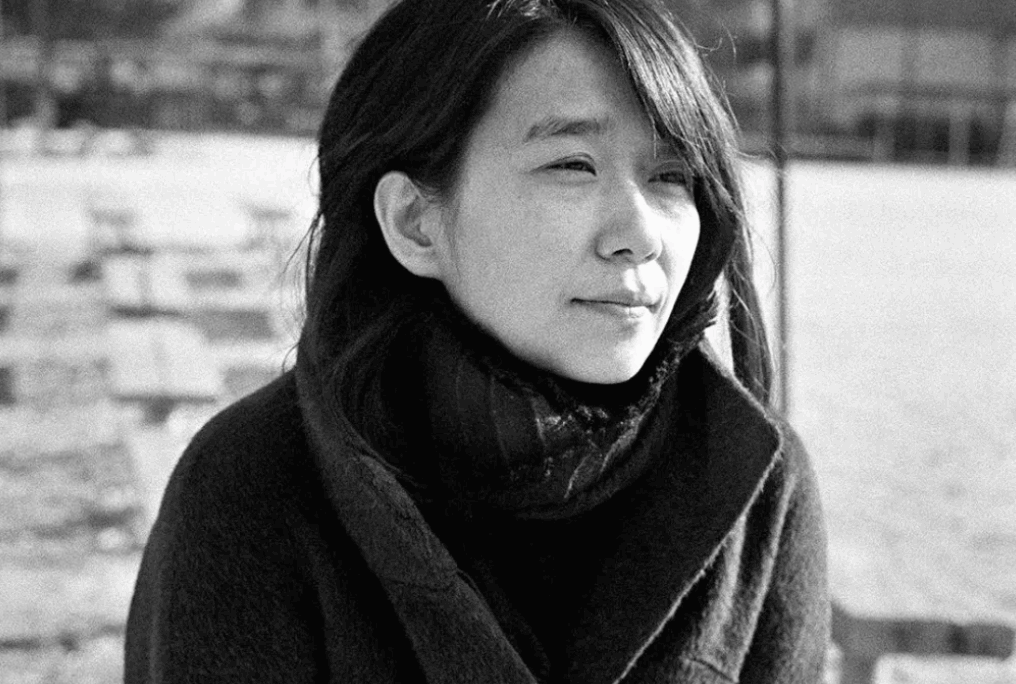Science fiction and fantasy have long held my interest. And while it is enjoyable to escape this world for one of wonder, sometimes, I enjoy the gritty Black-Mirror-esque imaginings of another time and place. Dipping my toes in the depths of man’s struggle with his place in the universe provides a chilly experience that, like a swim in a wintry lake, reminds me what it is to be alive.
Han Kang’s works are neither sci-fi or fantasy, but, like Haruki Murakami’s stories (one of my favorite authors) they explore the strange, the unexplored, delving so deeply into the psyche of their broken characters that you are left feeling a bit stained yourself. Despite living in Korea, I was first made aware of Han Kang when her book The Vegetarian won the 2024 Nobel Prize in Literature.
Recently, a new library opened just across the street from my apartment complex. Its English section is tiny, but I was happy to find of of Han Kang’s books there. It seemed The Vegetarian had already been checked out, but I was able to borrow her book Human Acts.

This book details the 1980 Gwangju Uprising, in which military forces beat down a peaceful protest using might and bullets and bayonets. The story is told from several points of view, seemingly a characteristic of Hang Kang’s storytelling style. While the accounts may not be 100% documentary-level accurate, they are based on true events and the accounts of those present.
This is not a book for those with weak stomachs. Many pages are devoted to detailing the decay of the bodies stored in a sweltering hot gymnasium as they are waiting to be claimed by family members. Descriptions of torture, abuse, and merciless killing are abundant. But there are also heroes. Those who stood, despite being told to disperse. It is a story of a people who would not be battered down by their government, a lesson that is perhaps more relevant than ever for westerners.

Soon after reading Human Acts, I was able to get my hands on the Vegetarian. It is a more personal story, following the members of a single family. The book is evenly divided into three parts, each from a different person’s POV, but, surprisingly, never from the POV of the main character. But from these other people in her life, we learn what they think of her, how her actions form cracks in their lives. They describe her to the reader, but it is just their opinion of the woman. We never get a look inside her mind, and it is what’s going on inside her mind that drives the plot of the book.
After reading two of Han Kang’s novels, I will certainly being reading more. I know that she has a collection of stories called “The White Book,” which I will read in the future. Her style is certainly not for everyone, as the subject matter is often strange and the usual action of a story not really present a lot of the time. But I enjoy her writing style, especially the way that it has been interpreted in Human Acts. Beautiful writing that is as evocative as it is depressing.
With the K-Wave splashing on shores around the world, Korean culture is becoming more of an interest to those who might never have given Seoul a second thought. If you have ever eaten tteokbeoki or watched Kpop Demon Hunters (and who hasn’t at this point), and you want to delve deeper into the nitty gritty of what lies behind the polished veil of Korean culture, Han Kang’s books are one good place to start.




